Overton Window
description: the range of policies politically acceptable to the mainstream population at a given time
40 results
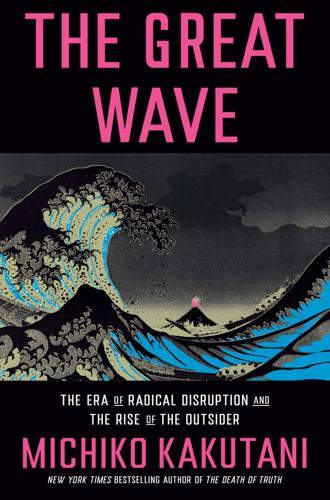
The Great Wave: The Era of Radical Disruption and the Rise of the Outsider
by
Michiko Kakutani
Published 20 Feb 2024
GO TO NOTE REFERENCE IN TEXT most influential work: “The 25 Most Influential Works of American Protest Art Since World War II,” The New York Times, Oct. 15, 2020, nytimes.com/2020/10/15/t-magazine/most-influential-protest-art.html. GO TO NOTE REFERENCE IN TEXT Chapter 4: Broken Windows and Sliding Doors “the Overton window”: Maggie Astor, “How the Politically Unthinkable Can Become Mainstream,” The New York Times, Feb. 26, 2019, nytimes.com/2019/02/26/us/politics/overton-window-democrats.html; “The Overton Window,” Mackinac Center for Public Policy, mackinac.org/OvertonWindow; Jason Deparle, “Right-of-Center Guru Goes Wide with the Gospel of Small Government,” The New York Times, Nov. 17, 2006, nytimes.com/2006/11/17/us/politics/rightofcenter-guru-goes-wide-with-the-gospel-of-small.html.
…
GO TO NOTE REFERENCE IN TEXT Chapter 4: Broken Windows and Sliding Doors “the Overton window”: Maggie Astor, “How the Politically Unthinkable Can Become Mainstream,” The New York Times, Feb. 26, 2019, nytimes.com/2019/02/26/us/politics/overton-window-democrats.html; “The Overton Window,” Mackinac Center for Public Policy, mackinac.org/OvertonWindow; Jason Deparle, “Right-of-Center Guru Goes Wide with the Gospel of Small Government,” The New York Times, Nov. 17, 2006, nytimes.com/2006/11/17/us/politics/rightofcenter-guru-goes-wide-with-the-gospel-of-small.html. GO TO NOTE REFERENCE IN TEXT “For anyone out there who is involved”: Francesca Willow, “What Is the Overton Window & Why It Matters for Climate Justice Activism,” Ethical Unicorn, June 11, 2022, ethicalunicorn.com/2022/06/11/what-is-the-overton-window-why-it-matters-for-climate-justice-activism. GO TO NOTE REFERENCE IN TEXT The parable, it turns out, isn’t true: Whit Gibbons, “The Legend of the Boiling Frog Is Just a Legend,” Savannah River Ecology Laboratory, University of Georgia, Dec. 23, 2007, archive-srel.uga.edu/outreach/ecoviews/ecoview071223.htm.
…
Bachman, adapted for ebook Cover design: Yang Kim Cover image: Katsushika Hokusai, The Great Wave Off the Coast of Kanagawa (altered), c. 1829–1831, Fine Art Images/Heritage Images/Getty Images ep_prh_6.2_146171367_c0_r0 CONTENTS Introduction Chapter 1 A Hinge Moment: Morbid Symptoms, Cascading Crises, and a Looming Paradigm Shift Chapter 2 Pirates and the New Frankenstein: How Outsiders Toppled the Status Quo and Unleashed a Tsunami of Unintended Consequences Chapter 3 Culture in the New Millennium: When the Edges Replaced the Center Chapter 4 Broken Windows and Sliding Doors: How Radicals Smashed the Overton Window Chapter 5 The Resistance Strikes Back: The New Grassroots Activism and the Power of Disruption Chapter 6 Outlaw Nation: America’s Love-Hate Affair with Outsiders Chapter 7 The Centrifugal Republic: Why Hackers, Politicians, and Business Leaders Embraced Decentralization Chapter 8 Optimizing Marginality: Outsiders and Outside-the-Box Thinking Chapter 9 Resilience in the Vuca-Verse: Coping with Volatility, Uncertainty, Complexity, and Ambiguity Epilogue Notes Additional Sources _146171367_ INTRODUCTION The Great Wave—It’s one of the best-known and most widely reproduced images on the planet, an image that embodies the feelings of dread and hope that come with swift, unpredictable change.
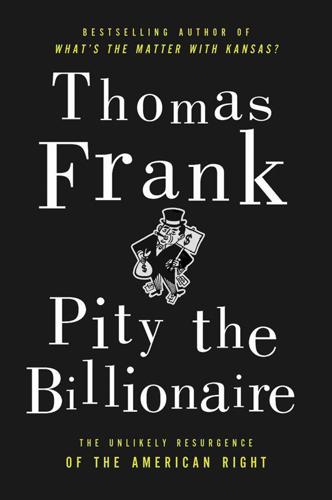
Pity the Billionaire: The Unexpected Resurgence of the American Right
by
Thomas Frank
Published 16 Aug 2011
The liberal stratagems they see around them are the stuff of Cold War duplicity—only with the roles reversed: it’s the liberals who are forever peddling crisis, not the people who used to insist that we were about to lose to the Soviets because we weren’t spending enough on the military. The best expression of this fear of trumped-up crisis comes in the 2010 “thriller” by Glenn Beck, The Overton Window. At one point in the novel, the son of an evil progressive PR genius is explaining his dad’s methods to his rebel-conservative girlfriend. “We never let a good crisis go to waste,” he says, echoing Emanuel, “and if no crisis exists, it’s easy enough to make one.” Saddam’s on the verge of getting nuclear weapons, so we have to invade before he wipes out Cleveland.
…
Beck himself, back in those days, was leading “Rallies for America” across the country, patriotic demonstrations that often featured a video message from President Bush. Liberals, you will recall, were the wimps on the other side of the issue—the ones like Barack Obama, who called the impending invasion “a dumb war.” To read The Overton Window eight years later, however, the whole episode was just another malevolent deed of the big-government conspiracy, to which only right-wing rebels are wise. Conservative populists, meanwhile, are imagined by the novelist Beck to be victims of everything big brother can throw at them. They are jailed on the flimsiest of charges.
…
Similar fears come up all the time in the larger conservative movement culture. In 2009, for example, the populist Right was swept by panic that the new Democratic administration was preparing internment camps for conservatives. On TV, Glenn Beck managed to feed this peculiar fear even as he debunked it, and in The Overton Window he plays it the same way: the existence of the camps is first suggested by an unreliable person, yet the main character seems to end up in just such a facility after his waterboarding. Fortunately, Beck has attached a nonfictional “Afterword” to the end of the novel to sort things out, and here he reminds the reader that a former director of the Federal Emergency Management Agency once proposed rounding up undesirables during a national emergency.10 This historical factoid is a favorite of conspiracy theorists and X-Files fans, but it is generally discussed absent an important detail: the FEMA boss who suggested those infamous plans was brought to Washington by Ronald Reagan; he was a close friend of the Reagan adviser and Tea Party sympathizer Ed Meese, and the object of his emergency scheme was to prevent a recurrence of the antiwar agitation of the sixties.11 The McCarran Act of 1950 also authorized a big roundup of left-wing radicals should a “national emergency” arise.12 And exactly such a roundup actually occurred in 1919, during the first red scare, when radicals and labor organizers were arrested and, in many cases, deported.
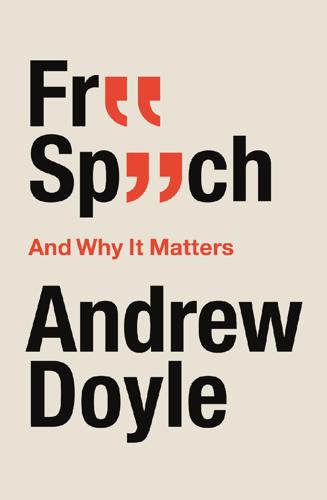
Free Speech And Why It Matters
by
Andrew Doyle
Published 24 Feb 2021
If those who support equal marriage are, as they claim to be, ‘on the right side of history’, they have nothing to fear from patience. The range of opinions that are deemed societally acceptable at any given moment is known as the ‘Overton Window’, and its tendency to shift according to time and location should tell us something about the cultural specificity of ethical norms. There are those who would like to see the Overton Window narrowed to the dimensions of a porthole, with the remaining space conveniently accommodating their own prejudices. When we encounter views that we find intolerable, our instinct nudges us towards enmity.
…
Even his choice of phrasing – ‘same-sex marriage’ rather than ‘equal marriage’ – marks him out as an antediluvian relic whose views do not merit the attention of those who know better. Yet thirty years ago his view would have been the prevailing one, and those who might have endorsed the now mainstream opinion would have been left stranded outside of the Overton Window. Progress is only ever made when the dissenters are heard. ‘If liberty means anything at all’, wrote Orwell, ‘it means the right to tell people what they do not want to hear.’ This is not to suggest that all forms of dissent are inherently progressive, but if we only ever expose ourselves to the received wisdom of the present, we condemn ourselves to eternal stasis.
…
p.42the issue of gay rights: Homosexuality was decriminalised in England and Wales in 1967 and in Scotland in 1980. The age of consent was equalised in 2001. Section 28 (the law prohibiting the ‘promotion’ of homosexuality in schools) was repealed in 2003. Gay marriage was legalised in the UK in 2014 and in Northern Ireland in 2020. p.42the cultural specificity of ethical norms: The ‘Overton Window’ is named after Joseph P Overton, who first conceived the idea in relation to the opinions expressed by politicians and how they would be received. p.43‘people stick to an opinion that they have long supported’: William Hazlitt, ‘Belief, whether voluntary?’ in Literary Remains, 2 vols. (London: Saunders and Otley, 1836), I, pp. 83–96.
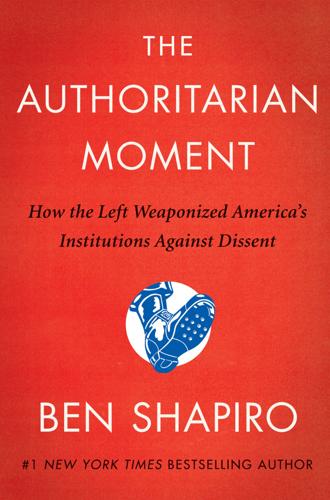
The Authoritarian Moment: How the Left Weaponized America's Institutions Against Dissent
by
Ben Shapiro
Published 26 Jul 2021
Symbols of loyalty would be demanded: properly self-righteous hashtags on Twitter; anti-Trump bumper stickers on cars; semantically overloaded, tautology-laden lawn signs plunked into well-manicured grass. Statements of dissociation would have to be undertaken: dissociation from newly identified code terms like “meritocracy” and “Western civilization” and “color-blindness.” Dissenters would be lumped in with Trump supporters. The Overton Window—the window of acceptable discourse—would be smashed shut, then boarded over. And, our cultural leftist authoritarians thought, it had worked. In 2018, Democrats won an overwhelming electoral victory, swamping Republicans across the country and seizing control of the House of Representatives, flipping 41 seats blue.
…
That’s how you get Coca-Cola, a company with over 80,000 employees, training its workforce to be “less white” in fully racist fashion, noting that to be “less white” means to be “less arrogant, less certain, less defensive, less ignorant, and more humble”—and claiming that this discriminatory content was designed to enhance “inclusion.”11 SHUTTING THE OVERTON WINDOW Within institutions, the authoritarian Left’s incremental demands have been taken up, one by one: from diversity training to affirmative action hiring, from charitable donations to internal purges. But for the generalized impact of institutional takeover to be felt requires one final step: the renormalization of our societal politics in favor of censorship.
…
This means threatening action against social media companies for allowing dissemination of nonliberal material, or seeking regulation targeting corporations who do not mirror the liberal agenda. Renormalization takes place by inches. Instead of simply calling for outright bans on broad swaths of speech, leftists have insisted that the Overton Window—the window of acceptable discourse, in which rational discussion can take place—ought to be gradually closed to anyone to the right of Hillary Clinton. This means savaging conservatives as racists and penalizing liberals who deign to converse with conservatives. This means that liberals are left with a choice of their own: they can either choose to form a coalition with leftists, with whom they agree on most policy goals, but with whom they disagree on fundamental freedom principles; or they can form a coalition with conservatives, with whom they disagree on policy goals, but with whom they agree on fundamental freedom principles.
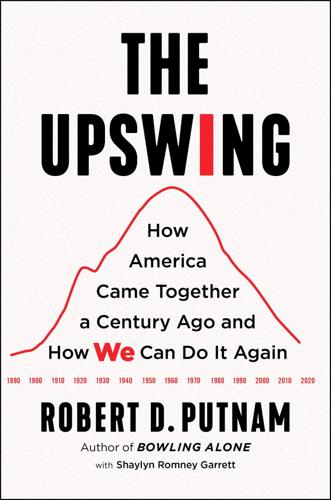
The Upswing: How America Came Together a Century Ago and How We Can Do It Again
by
Robert D. Putnam
Published 12 Oct 2020
“There is no period in American history when thinkers have not wrestled with the appropriate balance of power between self-interest and social obligation,” observes intellectual historian Jennifer Ratner-Rosenhagen.5 Examined closely, the relative emphasis on the individual and the community in American culture has varied over long periods of time, a pendulum swinging irregularly from one pole to the other and back again.6 But this pendulum doesn’t swing by itself. It is pushed one way or the other by social actors, sometimes by leaders, but often by grassroots activists. As it swings, it alters what pundits have recently called the “Overton window,” making some policies more promising and acceptable or at least conceivable and others less so. “The Overton window is the range of ideas tolerated in public discourse, also known as the window of discourse. The term is named after Joseph P. Overton, who stated that an idea’s political viability depends mainly on whether it falls within this range, rather than on politicians’ individual preferences.”7 As our culture becomes more individualist, for example, policies that rest on the assumption that “we’re all in this together,” like redistributive taxes, become unthinkable, while policies like deregulation become more plausible.
…
Dionne, Our Divided Political Heart: The Battle for the American Idea in an Age of Discontent (New York: Bloomsbury, 2012), with whose argument about the back-and-forth between individualism and community over American history this chapter has much in common. 6 Perhaps the single most influential book on individualism and community of the final decades of the twentieth century and one of the first to call attention to the incipient shift toward excessive individualism was Robert N. Bellah, William M. Sullivan, Steven M. Tipton, Richard Madsen, and Ann Swidler, Habits of the Heart: Individualism and Commitment in American Life (Berkeley: University of California Press, 1985). 7 “Overton Window,” in Wikipedia, November 18, 2018, https://en.wikipedia.org/w/index.php?title=Overton_window&oldid=926722212. 8 James T. Kloppenberg, Toward Democracy: The Struggle for Self-Rule in European and American Thought (New York: Oxford University Press, 2016), 633–702; Daniel Walker Howe, What Hath God Wrought: The Transformation of America, 1815–1848, The Oxford History of the United States (unnumbered) (New York: Oxford University Press, 2009); William Lee Miller, Lincoln’s Virtues: An Ethical Biography (New York: Alfred A.
…
TR’s Bull Moose Party was beaten by the equally progressive (or nearly so) Woodrow Wilson in 1912. In the fall of 1916, in an effort to attract TR’s 1912 four million votes, Wilson led congressional approval of the final tranche of national progressive legislation on child labor, the eight-hour workday, the estate tax, and a more progressive income tax. The Overton window had begun to shift to encompass more progressive policies, the culmination of a quarter century of cultural change and grassroots organizing. FANFARE FOR THE COMMON MAN: 1920–195028 After World War I the communitarian thrust of American politics and culture seemed to dissipate during the giddy, materialist interlude of the Roaring Twenties, remembered more for “flapper” dance crazes, Prohibition, gangsters, and stock market gyrations than for enduring policy or intellectual innovations.
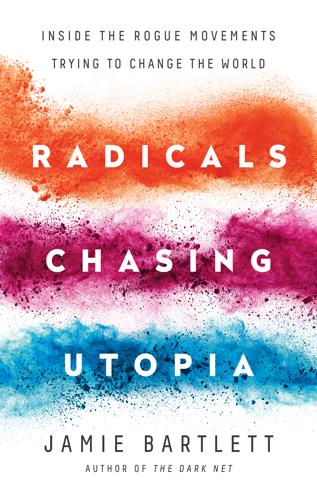
Radicals Chasing Utopia: Inside the Rogue Movements Trying to Change the World
by
Jamie Bartlett
Published 12 Jun 2017
There are disagreements on the details and implementation of course, but since the Second World War the main questions have been practically settled: A nation state with a single legal system, managed by officials and professional political parties elected through representative democracy, who determine what its citizens can see, do, buy and put in their bodies; an economy based on private ownership and free (but controlled) markets and public services; welfare funded by forced general taxation; and human rights protect citizens, who are free to practice whatever religious belief they wish as long as those beliefs and practices do not harm others. This set of ideas is sometimes called the ‘Overton window’, or the broad ideas that the majority of the public accept as respectable and normal. It was named after the American political scientist Joseph Overton, who described the range of policies that both left- and right-wing politicians needed to support if they wanted to get elected. Superficial deviations are fine, but anything outside of that window is too unusual, unworkable, unrealistic to be accepted by the public. Too radical. The Overton window has barely moved for years. But when I started this book in late 2014 there were signs it was beginning to widen.
…
Politics is an unpredictable, chaotic system: How precisely ideas shift from the fringe to the mainstream is an inexact science. More modestly, this is an attempt to understand why and how politics is changing: not from the viewpoint of the nervous mainstream, but from the heady perspective of those trying to change it. A combination of technological, economic and social changes are putting the Overton window under unprecedented strain, and Western democracies are entering an age of radicalism. The election of Donald Trump or the United Kingdom leaving the European Union are just early skirmishes in a more significant realignment, in which assumptions about what is ‘normal’ will change. This book, although certainly not a comprehensive guide to the political norms of tomorrow, is at least an introduction to some of the ideas and trends that may shape these changes.
…
The product of borders, nation states, wars, misery and suffering. Every day, fourteen people leave Slavonja in search of a better life. Epilogue 2016: An Ode Every generation feels itself to be living in unprecedented times and facing unique challenges. But by any measure, 2016 was a peculiar year. It was the year the Overton window—that consensus that defines acceptable, ‘normal’ political ideas—noticeably moved. Although no one could say precisely where it moved to. Or if a brick had been thrown through it. I began work on this book in 2014. By the time I finished over two years later, ideas that had seemed radical when I started were no longer quite so strange.
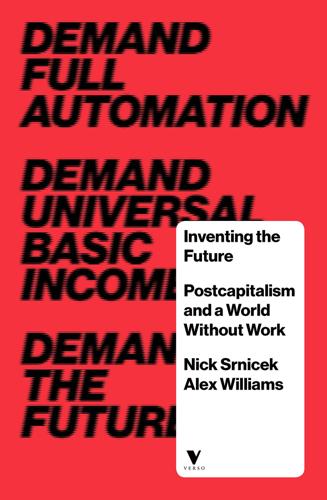
Inventing the Future: Postcapitalism and a World Without Work
by
Nick Srnicek
and
Alex Williams
Published 1 Oct 2015
Crucial here is the idea of the ‘Overton window’ – this is the bandwidth of ideas and options that can be ‘realistically’ discussed by politicians, public intellectuals and news media, and thus accepted by the public.15 The general window of realistic options emerges out of a complex nexus of causes – who controls key nodes in the press and broadcast media, the relative impact of popular culture, the relative balance of power between organised labour and capitalists, who holds executive political power, and so on. Though emerging from the intersection of different elements, the Overton window has a power of its own to shape which future paths are taken by societies and governments.
…
Initially considered ineffectual dreamers, they ended up heavily influencing the future science of rocketry.39 Likewise, early science fiction dealing with space exploration and cosmist utopias went on to influence state policy towards science and technology in the wake of the Russian Revolution.40 The creation of alternatives also makes it possible to recognise that another world is possible in the first place.41 As the flawed but significant global alternative posed by the USSR disappears from living memory, such images of a different world become increasingly important, widening the Overton window and experimenting with ideas about what might be achieved under different conditions. In elaborating an image of the future, utopian thought also generates a viewpoint from which the present becomes open to critique.42 It suspends the appearance of the present as inevitable and brings to light aspects of the world that would otherwise go unnoticed, raising questions that must be constitutively excluded.43 Recent US science fiction, for instance, has often been written in response to contemporary issues of race, gender and class, while early Russian utopias imagined worlds that overcame the problems posed by rapid urbanisation and conflicting ethnicities.44 These worlds not only model solutions, but illuminate problems.
…
For a lengthy critique of Laclau and Mouffe’s discourse-based hegemony theory, see Geoff Boucher, The Charmed Circle of Ideology: A Critique of Laclau and Mouffe, Butler and Žižek (Melbourne: re.press, 2009). 14.David Harvey, A Brief History of Neoliberalism (Oxford: Oxford University Press, 2005), p. 40. 15.This concept was originally devised by Joseph Overton, in relation to the proper operational purpose of a think tank. See Nathan J. Russell, ‘An Introduction to the Overton Window of Political Possibilities’, Mackinac Center for Public Policy, 4 January 2006, at mackinac.org. 16.This can be conceived in cultural terms as the creation of ‘capitalist realism’. See Mark Fisher, Capitalist Realism: Is There No Alternative? (Winchester: Zero, 2009). 17.‘In such a situation, hegemony has nothing to do with the capacity to make people believe in you; it has everything to do with the strategic capacity to render their belief or disbelief irrelevant.’
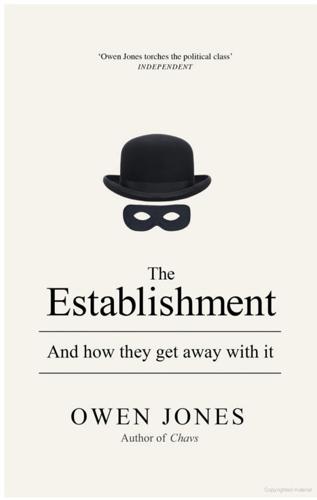
The Establishment: And How They Get Away With It
by
Owen Jones
Published 3 Sep 2014
It is not so much that their views have entered mainstream intellectual opinion: they have become the mainstream. What the corporate-backed outriders have achieved is this. They have helped shift the goalposts of debate in Britain, making ideas that were once ludicrous, absurd and wacky become the new common sense. In the terminology of right-wing political thinkers, they have shifted the ‘Overton Window’. The Overton Window is a cherished concept of the US right, coined in homage to Joseph P. Overton, the late vice-president of the right-wing think tank the Mackinac Center for Public Policy. It describes what is seen as politically possible or reasonable at any given time while remaining within the political mainstream.
…
But their beliefs do coincide with the interests of wealthy private and corporate interests, ensuring an extraordinarily effective marriage of convenience. A much broader coalition was then built, including an inherently sympathetic media and large swathes of the political elite. Together, this coalition shifted the terms of acceptable political debate: the ‘Overton Window’, which describes the boundaries of the politically possible. Everything within the Window is seen as mainstream, common sense, centre-ground, sensible and so on. Ideas that are outside the Window are dismissed as extremist, dangerous, impossible, ‘what-planet-are-you-living-on’. As the outriders showed, the Window is not static.
…
The outriders relentlessly propagated ideas that were not too radical to be instantly written off as too extreme, but radical enough to both put pressure on and create political opportunities for more mainstream sympathetic politicians. In the midst of crisis, when there is a greater prospect and a bigger appetite for radical change, this strategy really comes into its own. The economic crises of the 1970s – from which the modern Establishment emerged – and the 2000s were used effectively to shift the Overton Window. But the strategy always depended on the constant repetition of coherent messages, that is, a variety of different figures and institutions making the same point over and over again. The philosophy of the outriders – whether those in think tanks, university departments or the opinion pages of newspapers – had another important role.
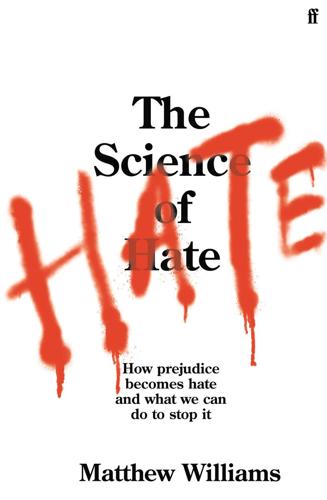
The Science of Hate: How Prejudice Becomes Hate and What We Can Do to Stop It
by
Matthew Williams
Published 23 Mar 2021
Key players in the movement had a plan to soften the neo-Nazi and white supremacist message so that it was more palatable to those just right of the mainstream. The rally was promoted on Facebook, Twitter and Reddit, platforms with the widest possible reach. The objective was to shift the Overton window – what is politically possible based on the current climate of public discourse – further to the right (see Figure 19).5 Fig. 19: The Overton window. The London-based Institute for Strategic Dialogue analysed ten thousand posts and two hundred pieces of online propaganda related to the rally.6 The alt-right were targeting students between the ages of fourteen and eighteen.
…
This study and others provide a solid evidence base on the effectiveness of online psychological targeting for digital mass persuasion, resulting in real-life behaviour change.15 A visit to an alt-right site that appears high on Google’s listings, possibly masquerading as something less extreme, can result in ads popping up on Facebook tailored to a user’s psychological profile, which attempt to red-pill them in the hope of shifting the Overton window further to the right. Gateway sites Using the internet to start a movement is not a new phenomenon. The Stormfront website, launched in 1995, is regarded as the first successful neo-Nazi online presence. It is run by Don Black, a former Ku Klux Klan leader, and actively promotes offline violence against minority groups.
…
Stormfront would become a gateway site for the far right, producing a lot of shareable content that was easy for moderate conservatives to agree with. Once hooked, the more extreme information was dripfed until the audience’s perception of acceptable social and political norms was shifted (see Overton window earlier this chapter). This was not the first time Don Black had attempted to surreptitiously spread the white supremacist message. In 1999 he registered MartinLutherKing.org as a gateway site to spread misinformation about its namesake (see Figure 21). Up until the beginning of 2018, when it was reported to Google as being owned by Stormfront, the site frequently appeared in the top four hits on searches for ‘Martin Luther King’.
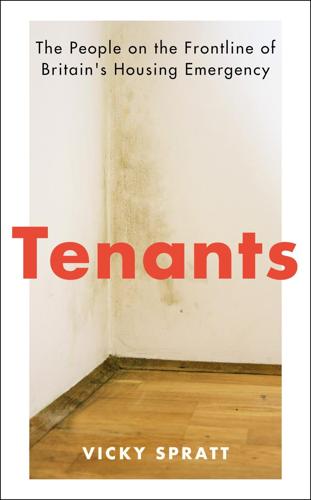
Tenants: The People on the Frontline of Britain's Housing Emergency
by
Vicky Spratt
Published 18 May 2022
This entails thinking beyond the electoral cycle and accepting that housing needs a long-term big-picture approach. What the pandemic did was make politics and policy more immediate. For the first time since the Second World War, what the government did directly impacted the lives of everybody – not just of select groups. This moved what is known as the Overton Window. This is an idea that was developed by the American lawyer Joseph Overton in the 1990s because he wanted to answer the question: why are so many good political policies – ones that make perfect sense, ones that could objectively improve people’s lives – dismissed out of hand? The answer is simple: politicians reflect public opinion rather than shape it.
…
The answer is simple: politicians reflect public opinion rather than shape it. And it can take a while for new ideas to become accepted. Of course, there is an argument that they also shape it (for good and bad) when they want to by positing new ideas and bringing people with them. But the reason that they generally play safe is that they want to be elected. The Overton Window is a model for understanding this, a framework for how ideas in society change over time and influence politics based on what is deemed acceptable to the electorate. Anything that lies outside of it is considered unthinkable or radical, and politicians risk losing popular support if they champion such ideas.
…
If they want to hold on to power, politicians have to gauge what will be tolerated by the majority of people and propose policies accordingly. Which is why, as discussed previously, homeownership and house price inflation have been not only normalised but prioritised. Yet coronavirus has proved that the Overton Window can shift rapidly. The pandemic was unexpected and beyond anyone’s control. It moved the needle. We can see this in the fact that, since March 2020, receiving and accepting state support has become less shrouded in shame and stigma. State support is once again something for which not just high-profile people – such as the footballer Marcus Rashford, who campaigned for the government to extend free school meals outside of term time – are proudly prepared to advocate.

WTF?: What's the Future and Why It's Up to Us
by
Tim O'Reilly
Published 9 Oct 2017
The barriers to fresh thinking are even higher in politics than in business. The Overton Window, a term introduced by Joseph P. Overton of the Mackinac Center for Public Policy, says that an idea’s political viability depends mainly on whether it falls within the window framing a range of policies considered politically acceptable in the current climate of public opinion. There are ideas that a politician simply cannot recommend without being considered too extreme to gain or keep public office. In the 2016 US presidential election, Donald Trump didn’t just push the Overton Window far to the right, he shattered it, making statement after statement that would have been disqualifying for any previous candidate.
…
This has generally happened in US history as a result of great dislocations, where business as usual just couldn’t continue. It took the Great Depression to give Franklin Roosevelt and Frances Perkins the license to put in place the New Deal. But given that license, they imagined the unimaginable. I was thinking about the Overton Window in November 2016 after attending the Summit on Technology and Opportunity, hosted by the White House, the Chan Zuckerberg Initiative, and the Stanford Center on Poverty and Inequality. I had done a lunchtime debate with Martin Ford, author of the bestselling book The Rise of the Robots, which makes the case that artificial intelligence will take over more and more human jobs, including knowledge work.
…
When imagining the future, it’s best if you stretch out your view of the possible by postulating extreme futures. So let’s assume that machines do replace a vast majority of human work, and most humans are put out of work. What are some of the sacred cows that we might toss through the shattered Overton Window of public policy? If most humans are out of work, a brief exercise of “If this goes on . . .” thinking would quickly lead us to realize that personal income taxes can no longer be the primary source of government revenue. Some other source will be needed, so why not start thinking about it now?
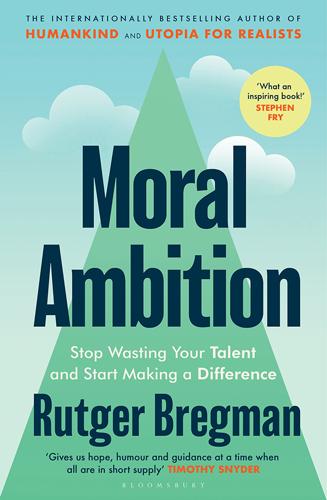
Moral Ambition: Stop Wasting Your Talent and Start Making a Difference
by
Bregman, Rutger
Published 9 Mar 2025
That’s right, one of the greatest abolitionists of all time shifted his focus to the suffering among the perpetrators. Psychologists call this tactic moral reframing.20 The idea is to find new arguments for the same standpoint – arguments that resonate with people outside your cult and fall within the Overton window. An example: a left-wing politician who wants to raise taxes on the rich isn’t likely to convince a right-wing voter by talking about how everything is so unfairly distributed. But what happens if they show that – aside from some industrious types – the very rich by and large don’t work for their money?
…
He continued working for the German war industry until 1945, and differed little in that sense from most other Christians in Nazi Germany who did nothing to resist the regime. More than seventy years ago, in one of his most famous sermons, MLK emphasised that non-conformity isn’t in itself a virtue. It’s not about what you think or say; it’s about what you do to move that Overton window and win the fight against injustice. Non-conformity may inspire, but it can also get mired in exhibitionism. Reverend King preached of the need for ‘a tough mind and a tender heart’ both. ‘The idealists are not usually realistic,’ he said, ‘and the realists are not usually idealistic.’57 What we need is some realistic idealism. 5 Learn to weep over spreadsheets Instead of comparing our lot with that of those who are more fortunate than we are, we should compare it with the lot of the great majority of our fellow men.
…
B. here Duflo, Esther here Ebola virus here–here, here Eckler, Irma here Edison, Thomas here, here, here–here education here–here Edward II, King here effective altruism (EA) here, here–here Egyptians, ancient here Einstein, Albert here, here, here Emerging Leaders in Biosecurity Initiative here empathy here, here, here, here Enovid here–here entrepreneurs here, here, here, here, here, here, here, here–here, here Equiano, Olaudah here–here Extinction Rebellion here, here factory farms here–here, here, here–here, here, here Family Empowerment Media here family planning, see contraception far-UVC here Fauntroy, Walter here Fell, Hans-Josef here–here, here, here feminism here, here–here, here–here, here, here see also women’s rights Fihn, Beatrice here First World War here flu viruses here flying here, here Fogelman, Eva here–here food safety standards here Ford, Henry here forest fires here Fortify Health here fossil fuels here, here–here, here, here Franklin, Benjamin here French Revolution here, here Gandhi, Mahatma here–here Garcés, Leah here–here Garland, Charles here–here gas pipeline safety here Gates, Bill here, here gay marriage here, here Gen Z here General Motors here, here–here, here genetic material, hazardous here George, Robert P. here GiveWell here, here–here, here, here, here–here Giving What We Can here global income distribution here–here Golden Rule here, here, here Goldman, Emma here Gore, Al here–here Graeber, David here Gray, Fred here ‘Great Acceleration’ here Greeks, ancient here Green, Martin here–here Guantanamo Bay here Guide Dogs for the Blind here Hammelburg here–here Harvard Business School here–here Harvard Law School here–here, here–here, here Harvard University here, here, here, here, here, here, here Heyrick, Elizabeth here Highlander Folk School here Hinton, Geoffrey here Hirschman, Albert here Hitler, Adolf here HIV/AIDS here, here Hoffman, Reid here homosexuality here, here, here–here, here see also gay marriage Horowitz, Rachelle here–here horsepox here household work here–here Howes, Anton here–here hunger here, here, here Hurley, Chad here Incas here inequality here, here, here, here, here, here, here, here, here Intercept here internal locus of control here International Campaign to Abolish Nuclear Weapons here International Energy Agency here intersectionality here–here interventions, cost-effectiveness of here, here ‘intransigent minority’ here Iraq war here Jefferson, Thomas here Jesus Christ here Johnson, Geneva here Johnson, Lyndon B. here Joy, Melanie here Kant, Immanuel here Karim, Jawed here Karnofsky, Holden here–here, here, here Kazakhstan here Keller, Helen here, here Kennedy, John F. here–here Khan-Cullors, Patrisse here King, Martin Luther, Jr here, here, here–here, here, here–here, here, here, here Landmesser, August here–here, here, here–here, here Lay, Benjamin here, here, here Le Chambon-sur-Lignon here lead poisoning here–here Leonardo da Vinci here Léons, Max here–here, here–here Lewis, Helen here Life magazine here, here LinkedIn here Locke, John here Lockwood, Benjamin here–here Louis C.K. here Luther, Martin here lynching here Ma, Yo-Yo here Maalin, Ali Maow here, here MacAskill, William here, here–here McCormick, Katharine here–here, here, here McDonald, Susie here McKinsey here malaria here–here, here, here–here, here, here, here, here, here, here, here Malcolm X here, here malnutrition here, here, here Mandela, Nelson here, here Manhattan Project here–here Marburg virus here March on Washington here–here Mars here Massachusetts Institute of Technology here, here, here Mather, Rob here–here, here–here, here, here–here, here, here, here, here–here, here Maya here Mead, Margaret here, here, here meat, cultivated here, here–here, here meditation here, here mindfulness here, here Mitchell, Harry here Mohammed here Monbiot, George here Montgomery bus boycott here, here–here, here, here Moon, the here and moon shots here, here, here moral reframing here Moskovitz, Dustin here mosquito nets here, here–here, here, here Mott, Lucretia here Mumsnet here Murray, Pauli here Musk, Elon here Nader, Ralph here–here, here, here, here, here Nader’s Raiders here, here–here, here, here, here NARAL here National Association for the Advancement of Colored People (NAACP) here Nauru here Nazi Germany here–here, here–here, here–here Netherlands, Nazi-occupied here–here, here New York Times here–here, here, here Nienhuus, Farmer here–here Nieuwlande here, here, here, here–here, here Nigeria here No Lean Season here–here Northern Ireland here nuclear fusion here, here nuclear weapons here, here–here, here–here Obama, Barack here Occupy Wall Street here, here OkCupid here Oliner, Samuel and Pearl here–here, here Open Philanthropy here opinion polls here Oppenheimer, J. Robert here opportunity costs here Ord, Toby here–here, here organisation-building here–here Organization for the Prohibition of Chemical Weapons here Orwell, George here–here overpopulation here Overton, Joseph here Overton window here–here, here, here Oxford University here, here, here–here, here pandemics here, here, here, here–here, here–here see also Covid-19 pandemic Pankhurst, Emmeline here Pannu, Jassi here–here Pareto, Vilfredo here Pareto principle here Parks, Rosa here, here–here, here, here part-time work here passive income here PayPal here, here Perdue, Jim here Perdue here–here pessimism here, here philosophy here–here, here–here pill, the here–here, here Pincus, Gregory Goodwin here Pinker, Steven here polio here–here, here ‘political hobbyism’ here population growth here–here poverty here, here, here–here, here, here, here, here, here, here, here, here, here, here, here power laws here, here–here, here Princeton University here, here, here Project Sapphire here public interest lawyers here Pythagoras here Pythagoreans here Quakers here–here, here–here, here, here, here, here, here, here racial segregation here racism here–here, here, here, here, here Raine, Allen here Raleigh News & Observer here Randolph, A.
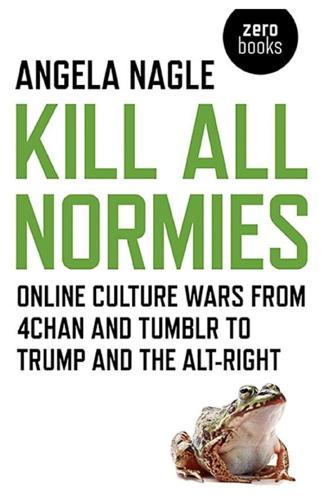
Kill All Normies: Online Culture Wars From 4Chan and Tumblr to Trump and the Alt-Right
by
Angela Nagle
Published 6 Jun 2017
They were the youthful bridge between the alt-right and mainstream Trumpism. Although the tactics of the online right are updated to a digital age, it is hard to think of a better term than Gramscian to describe what they have strategically achieved, as a movement almost entirely based on influencing culture and shifting the Overton window through media and culture, not just formal politics. They succeeded largely by bypassing the dying mainstream media and creating an Internet-culture and alternative media of their own from the ground up. Here, I want to look more closely at those being called the alt-light, who became major independent social media figures with huge audiences well before Trump’s win.
…
One is that long before it bubbled up to the surface of college campuses, and even Twitter and YouTube, it developed, in oppositions to its enemy online culture of the new identity politics typified by platforms like Tumblr. They tried to move the culture in the opposite direction by restricting speech on the right but expanding the Overton window on the left when it came to issues of race and gender, making increasingly anti-male, anti-white, anti-straight, anti-cis rhetoric normal on the cultural left. The liberal online culture typified by Tumblr was equally successful in pushing fringe ideas into the mainstream. It was ultra-sensitive in contrast to the shocking irreverence of chan culture, but equally subcultural and radical.
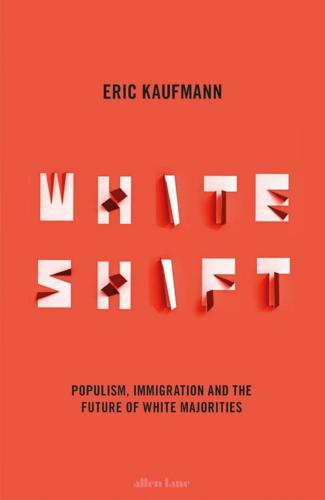
Whiteshift: Populism, Immigration and the Future of White Majorities
by
Eric Kaufmann
Published 24 Oct 2018
The FPÖ’s previous high of 27 per cent was vastly exceeded by its 49 per cent in 2016 partly because it had become more acceptable to vote for the populist right. The populist surge is not only about what’s driving it, but what’s no longer restraining it. The same holds for immigration. The fact Trump openly talked about building a wall and banning Muslims and still won shifted the so-called ‘Overton Window’ of acceptable political ideas within the right-wing media. This weakened the anti-racist taboo among American conservatives and made it acceptable to openly campaign on a platform of reducing immigration. In Canada, by contrast, the taboo still holds on the right, so talk of reducing immigration lies beyond the bounds of the permissible.
…
On the other hand, the fact that Trump’s outrageous statements about women and minorities were not a deal-breaker for many voters is an important indicator of the limited power that norms of ‘political correctness’ – not making remarks about minorities that are negative (or which might be construed as negative by left-modernists) – possess over much of the Republican electorate. Attacks on political correctness were a signature of Trump’s campaign and, as we’ll see, one of the themes that resonated most strongly with many voters. The phrase repeatedly got the president out of tight spots during interviews and demonstrates how far he managed to stretch the ‘Overton Window’ of acceptable public discourse. Trump’s repeated outrages and cavalier attitude to controversy seemed to blunt the force of the social sanctions which had, for instance, compelled FAIR to avoid any mention of cultural anxieties over immigration. Questioned by Fox host Megyn Kelly regarding his pejorative comments about women as ‘animals’, ‘slobs’ and sex objects, he replied, ‘I think the big problem this country has is being politically correct.’
…
If successful, this would represent a historic interruption of the post-1965 pro-immigration consensus: the first reduction in numbers since 1965 and a return to immigration levels not seen since the 1960s. In addition to its practical ramifications, the move is pregnant with symbolism because it politicizes legal immigration, a topic once considered outside the Overton Window of acceptable debate in American politics. Between the Wall, cuts to legal immigration and the fate of the DREAMers – whose Obama-era protection from deportation was set to expire – immigration had become the central point of contention in American politics. In January 2018, the Democrats and Republicans failed to agree over the fate of the DREAMers, whom the Republicans promised to protect in exchange for concessions on the Wall and reductions in legal immigration.
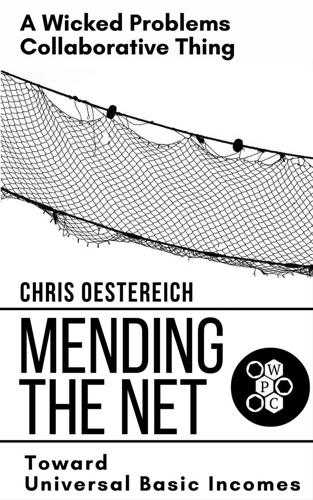
Mending the Net: Toward Universal Basic Incomes
by
Chris Oestereich
Published 20 Oct 2016
This is believed to reduce incentives for people to work hard and develop innovations which would increase the size of the economic pie. (The idea that the pie should grow forever is another one that tends to be accepted uncritically, but we'll have to save that for another day.) This scenario is so far outside of the realm of possibility currently available to Western democracies that it can't even be seen from today's Overton Window, so it seems a waste to discuss it further. That leaves us with the middle case—the pursuit of wants. In this scenario, needs would largely, if not fully, be provided for. We’d then have to take care of any gap s in our needs (This might be something that communities could collectively address), and then any desires beyond this (Luxury cars, big houses, boats, planes, hovercraft, etc.) would be up to the individual to pursue.
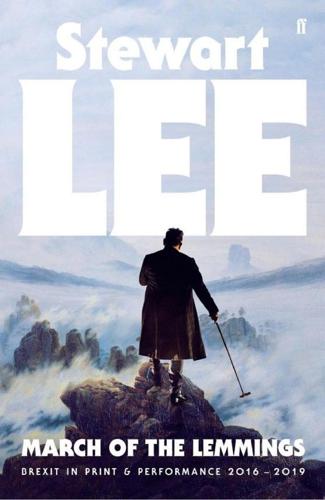
March of the Lemmings: Brexit in Print and Performance 2016–2019
by
Stewart Lee
Published 2 Sep 2019
Nonetheless, this shit hung around in the top ten Google hits of my name for years, portraying me as some kind of unhinged psychopath, and I suspect it cost the kids a few playdates. The following week, after facing mass ridicule online from people who were at the show, and who all got the idea, the critic returned and filed a more balanced report. 2 This is the second mention of the Overton window in this book. And yet, as I sit here writing these footnotes, I can’t even remember what the fucking Overton window is. You look it up. I’ve got early-onset Alzheimer’s, I reckon. It’s thirty years of gigs and never sleeping. I don’t even know what the me from a year ago was talking about. Fuck! Fuck! I’m fucking … Fuck! Don’t drag Abba into Theresa May’s Dead-Cat Dance 5 October 2018 The only available room in Birmingham last Tuesday night was an Airbnb on Edward Street.
…
On Thursday night, I and my tour manager were trapped in Bristol by the Beast from the East5 and I was denied two days back with my resentful family in London, as we remained there until Sunday and a date in Plymouth. An audience member’s ice-skidding car had crashed into the loading doors of the Bristol theatre, where it remained for days, blocking our exit, closing the Overton window of our departure and tripling our hotel bill. I missed the kids and sat in reading Ice, worrying about their futures until my heart ached. On Sunday we set off towards Plymouth.6 Though the sudden snow was thawing, all along the A386 abandoned cars lay shipwrecked in laybys, ditched during Thursday’s snowstorm and now stripped clean of parts and fabrics, the Devonshire locals reverting to type at the first sign of social breakdown.
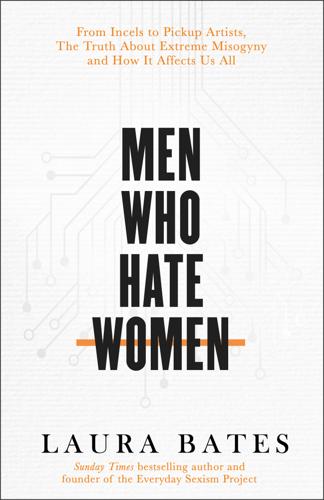
Men Who Hate Women: From Incels to Pickup Artists, the Truth About Extreme Misogyny and How It Affects Us All
by
Laura Bates
Published 2 Sep 2020
His use of the term ‘window’ is not a coincidence – manosphere and white-supremacist forums alike are obsessed with the concept of the ‘Overton window’, a term describing the range of ideas tolerated in public discourse. When figures like Morgan use rhetoric that might previously have been considered radical or unacceptable, or politicians like Trump express ideas that might have seemed unthinkable for a former president to utter, alt-right and incel forums cheer at their perception that the Overton window has shifted, opening a wider gap for their even more extreme ideas to nudge their way into the mainstream. So you end up with a chain, which starts in the most extreme online forums: men like Matt Forney explicitly advocating beating women, and incels discussing keeping women as sex slaves.
…
They just need to hold out the bait and wait for a little nibble. People who are attracted enough to swallow the hook will find their own way down the rest of the line. And those holding the rod are able to capitalise handsomely, reeling in the benefits of their money, their online adoration or their votes. The Overton window has shifted far enough for those who have newly discovered the manosphere to convince themselves that there’s nothing too outrageous about what they are doing, until it’s too late. Until they reach the point at which being outrageous is exactly the point. And even those who don’t reach that point of eventual radicalisation are not lost causes.
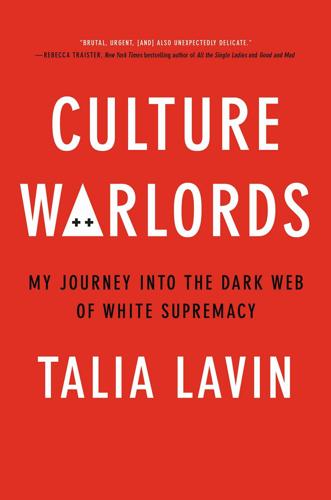
Culture Warlords: My Journey Into the Dark Web of White Supremacy
by
Talia Lavin
Published 14 Jul 2020
“The GOP is essentially the White man’s party at this point (it gets Whiter every election cycle), so it makes far more sense for us to subvert it than to create our own party.” Yet for the most part, figures like Casey, who retain hope that the GOP remains a viable route for open white nationalists to gain power, have become a minority on the far right. Those who sought to broaden the Overton window of American discourse through an outward appearance of respectability, like Richard Spencer, have largely found themselves disgraced as the American left grows more and more vocal about the need to stamp out organized racism. Disillusionment with Trumpism—as well as the innate violence of the white-supremacist movement’s culture, which disdains such slow and unthrilling measures as voting and committee meetings—has led to a distancing from their brief embrace of electoral politics.
…
These young white nationalists called themselves the Groyper movement—a moniker based on an obscure Pepe the Frog meme. Their agenda had three major points: advocating for anti-Semitism; advancing the theory that white Americans are being “replaced” by immigrants, including legal ones; and asserting the necessity of explicit homophobia.6 Their greater goal is a calculated shattering of the Overton window, drawing the GOP closer and closer to the white-nationalist movement until their goals and public rhetoric are fundamentally indistinguishable. Throughout his tour of various colleges all over the United States, Charlie Kirk, Turning Point USA’s twenty-six-year-old spokesman, struggled to answer questions from smirking young men in MAGA hats, like “Can you prove that our white European ideals will be maintained if the country is no longer made up of white European descendants?”

Going Dark: The Secret Social Lives of Extremists
by
Julia Ebner
Published 20 Feb 2020
I want to change the cultural narrative,’ said Andrew Breitbart, the creator of the website that has become the favourite source of information and commentary for today’s far right.22 To do so, you need to create provocative counter-cultures that attract young people to increase public pressure on mainstream politicians – ‘metapolitics’. ‘We need polarising action,’ Martin Sellner explains. ‘No one likes it because you are forced to choose sides, but it is needed to provoke change.’ Over time this will normalise far-right world views, he believes, and move the ‘Overton window’23 – the range of ideas that are deemed acceptable in public discourse – to the right. They have learned from the alt-right’s transgressive and disruptive campaigns. For example, in 2016, the Austrian Identitarians simulated a terrorist attack in a flash mob in central Vienna and a few months later covered the famous statue of Maria Theresa in a burqa to attract the media’s attention.
…
Available at https://www.thetimes.co.uk/article/premier-league-clubs-warned-over-far-right-football-lads-alliance-0mgq2lppv. 20Hannibal Bateman, ‘Generation Alt-Right’, Radix Journal, 14 April 2016. Available at https://www.radixjournal.com/2016/04/2016-4-14-generation-alt-right/. 21Ibid. 22James Poniewozik, ‘Andrew Breitbart, 1969–2012’, Time, 1 March 2012. Available at http://entertainment.time.com/2012/03/01/andrew-breitbart-1969-2012/. 23The concept of the ‘Overton Window’ describes the window of politically viable views and was developed by Joseph P. Overton. 24Whitney Phillips, ‘The Oxygen of Amplification: Better Practices for Reporting on Extremists, Antagonists, and Manipulators Online’, Data & Society Research Foundation, 2018. Retrieved from https://datasociety.net/output/oxygen-of-amplification/. 25Lizzie Dearden, ‘Generation Identity: Far-right group sending UK recruits to military-style training camps in Europe’, Independent, 9 November 2017.
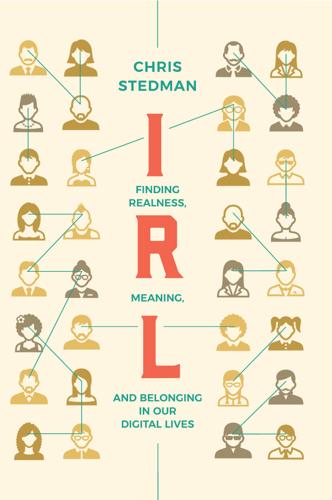
IRL: Finding Realness, Meaning, and Belonging in Our Digital Lives
by
Chris Stedman
Published 19 Oct 2020
This ability to rewrite the narrative, bringing stories that so often get ignored to light and circumventing the gatekeepers—people in power, wealthy owners of legacy media, elected officials—who have traditionally shaped it, is one of social media’s most vital offerings. Social media helps expand the Overton Window, which is the range of what’s considered acceptable public discourse. Online we can see that a wider range of perspectives is available to us. “By exposing people to each other, and each other’s ideas, [social media] expands the range of acceptable discourse, feeding a hungry public who wants to talk about issues that in previous eras might not have been discussed as openly,” writes Mina.
…
“By exposing people to each other, and each other’s ideas, [social media] expands the range of acceptable discourse, feeding a hungry public who wants to talk about issues that in previous eras might not have been discussed as openly,” writes Mina. This is generally positive but it can also be harmful. YouTube algorithms often push increasingly extreme content into people’s recommendations, and as such they are frequently cited as a gateway into white supremacist movements. As the Overton Window expands, we need to be vigilant about which of these expansions move us in the direction of our values—such as helping people better understand the experiences of transgender people or immigrants—and which open the door to ideas that run counter to human dignity. But at its best, the internet is one of the most powerful tools available for seeing one another across immense distances. *** Even as we cross vast distances and discover ways to advocate for one another, there are also important reasons we want to disappear—to put distance between ourselves and the world.
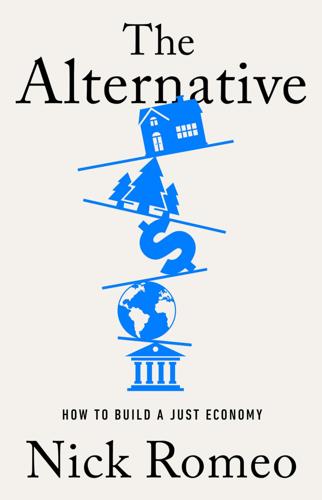
The Alternative: How to Build a Just Economy
by
Nick Romeo
Published 15 Jan 2024
Even for the vast majority of people who do not hold powerful positions, it’s possible to support businesses and politicians that recognize the economy’s inherently moral dimensions and adopt policies with a demonstrated potential to create a more just economy. A more basic avenue of influence is the humble but fundamental power of conversation. The Overton window—social science jargon for the policy ideas politically acceptable to the mainstream at a given time—is shaped by our beliefs and attitudes. Conversing about moral and political values—preferably not on social media—can expand our sense of what is possible and desirable. As I began the research and reporting for this book, inflation was not a major economic issue.
…
Corporate profiteering is not the only cause of inflation, but one analysis found that fatter profit margins accounted for more than half of the price increases in the nonfinancial corporate sector (which is about 75 percent of the entire private sector).7 Two successful policy tools used during similar circumstances in the Second World War were an excess profit tax and strategic price controls in some sectors of the economy. But these once standard policy tools now seem to be hovering somewhere outside the frame of the Overton window, evoking an emotional response from many mainstream economists. Paul Krugman, for instance, called Weber’s proposal for price controls “beyond stupid,” before hastily backtracking. Germany and much of the EU, by contrast, have considered the idea seriously and implemented versions of these controls in certain sectors.8 If more journalists, editors, citizens, politicians, and business leaders received a less dogmatic and more historically informed economics education of the sort envisioned by the reformers in Chapter 1, a broader set of policy options could emerge.

Evil Geniuses: The Unmaking of America: A Recent History
by
Kurt Andersen
Published 14 Sep 2020
Radical ideas properly framed and promoted by intellectuals, young Joseph Overton explained, thereby get traction and eventually move from beyond the pale toward the center and change the world. Not long afterward, he died a very American-individualist death (his one-man ultralight aircraft crashed), but the Overton Window is now shorthand for that process of normalizing the ideologically wild-and-crazy. A century before Overton or Friedman, however, Anthony Trollope nailed it in Phineas Finn, his novel about British politics. After losing a vote in Parliament to give more rights to Irish sharecroppers, a leftist MP character explains to his young protégé how they’ll get their way in the long run: Many who before regarded legislation on the subject as chimerical will now fancy that it is only dangerous, or perhaps not more than difficult.
…
That is the way in which public opinion is made. By the way, Phineas Finn was published in 1868. Three years earlier in America, the U.S. government ended slavery once and for all even though, just a decade before, emancipation and abolition were ideas on the American fringe, political pipe dreams. But the Trollope-Friedman-Overton Window opened. What has been happening with the economic left in America lately could be a historical rhyme with what happened with the right in the 1970s after its forty years in the wilderness. It had had its celebrated lodestars for decades—popularizers like William F. Buckley and Barry Goldwater and Ronald Reagan in the 1950s and ’60s, increasingly well-known economists for the cognoscenti (the Austrian Friedrich Hayek) and the masses (Milton Friedman) who both got Nobels in the mid-1970s as credible right-wing think tanks appeared.
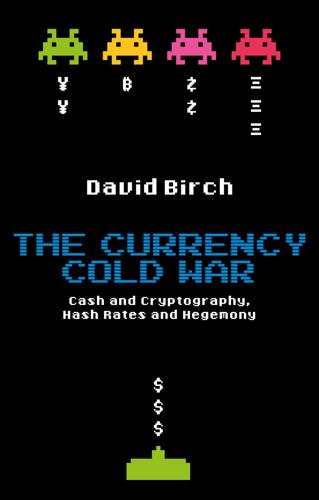
The Currency Cold War: Cash and Cryptography, Hash Rates and Hegemony
by
David G. W. Birch
Published 14 Apr 2020
The idea was that ordinary Americans, millions of them facing immediate unemployment, could receive fast-relief financial distributions from the federal government rather than having to rely on the banking system’s slow, byzantine and restrictive cheque-distribution process. The half-baked proposal was subsequently removed, but it marked a dramatic widening in the Overton window of what is open to discussion. A digital dollar is now on the table. Meanwhile, an early-April report from the Bank for International Settlements predicted that concerns over the safety of ‘dirty’ banknotes would lead central banks to accelerate their various digital currency projects. It is striking, too, that ‘social distancing’ has moved our human connections even more deeply into an online, digital existence: a trend that lends itself even more to digital money and finance.
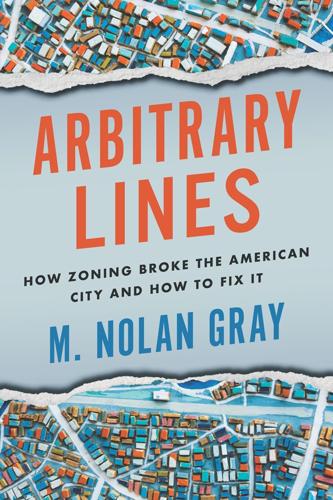
Arbitrary Lines: How Zoning Broke the American City and How to Fix It
by
M. Nolan Gray
Published 20 Jun 2022
For the sake of our cities and the people who live in them, it’s time we fundamentally rethink how we regulate land in America. Why Reform Isn’t Enough In light of the current political realities limiting the scope of debate, focusing on zoning reform makes sense. Until the metaphorical Overton window opens up—a shift this book aims to help along—it makes sense for activists and policymakers to focus their scarce resources on causes like reforming local codes or adopting thoughtful state preemptions. But merely reforming zoning cannot be the end goal. The forces that made zoning so awful in the first place won’t magically go away even if we succeed in scrapping single-family zoning or lowering minimum lot sizes.
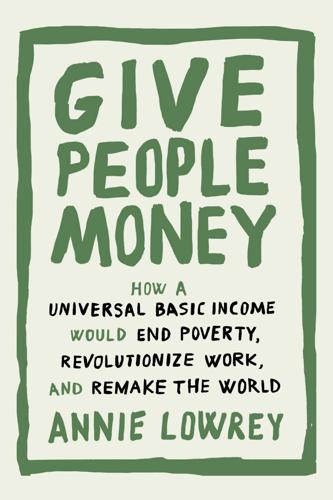
Give People Money
by
Annie Lowrey
Published 10 Jul 2018
In light of the country’s political polarization, veiled and unveiled racism, income inequality, wage stagnation, and geographic pulling apart; for all the growth in the wealth gap and of student-loan debt; given the country’s retirement and disability and child-care-work crises; granted the Uberization of the economy, the Overton window—the scope of policy possibilities—has been thrown open. The questions are big, and the answers are too. A radical vision and a radical understanding of the economic possibilities—hope, in other words—are part of the UBI resurgence. Indeed, one of the lessons of a UBI is that our policy outcomes are not inevitabilities but choices.

Uncanny Valley: A Memoir
by
Anna Wiener
Published 14 Jan 2020
What books make up the core of your operating system? the men asked one another, with great sincerity. They discussed how to preserve mental cycles, how to achieve a state of Deep Work. They debated the merits of a Hippocratic oath for developers, the existence of natural monopolies, the value creation of personal compliments, the state of the Overton window. They talked about Stoicism as a life hack. They teetered on the brink of self-actualization. When news about the open-source startup’s gender discrimination case first came to light, the message-board commentariat had grappled with the company’s fall from grace. They pounced on a detail that had surfaced in the reports, about male employees watching their female coworkers Hula-Hoop to music in the office.
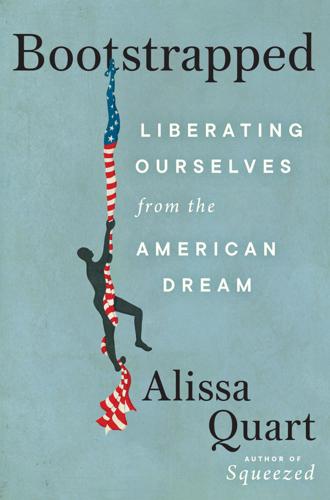
Bootstrapped: Liberating Ourselves From the American Dream
by
Alissa Quart
Published 14 Mar 2023
Despite reliable pushbacks and setbacks, the start of the Biden administration revealed a new level of public support for items like paid family leave (although the four weeks that were on offer in October 2021 still put the United States nearer to the bottom of the 174 countries that offer paid leave for personal health problems). The pandemic was like an Overton window for a different way of thinking about societal care and interconnectedness, from paid leave to childcare assistance. Soon enough, the torments of a riven Democratic Party and extrapartisan Republicans returned to haunt our country, with reactionary forces working, with great war chests, to shut these ideas and movements down, and so far, relatively successfully.
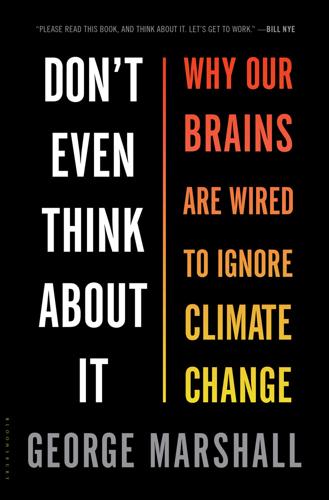
Don't Even Think About It: Why Our Brains Are Wired to Ignore Climate Change
by
George Marshall
Published 18 Aug 2014
As Stanley Cohen wrote about human rights abuses, “Without being told what to think about (or what not to think about), and without being punished for ‘knowing’ the wrong things, societies arrive at unwritten agreements about what can be publically remembered and acknowledged.” Of course this may yet change. The Overton window appears to be swinging back, pushed along by highly salient weather events. Action against climate change may not yet be a safe topic for a barroom conversation in Tulsa, but it is appearing again in the jokes of the late-night talk shows. The processes that define the norms of attention contain powerful feedbacks that can amplify change as well as suppress it.
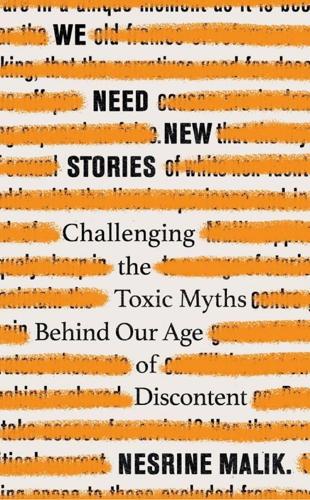
We Need New Stories: Challenging the Toxic Myths Behind Our Age of Discontent
by
Nesrine Malik
Published 4 Sep 2019
He would be on social media with hundreds of thousands of followers, on a YouTube channel and hosted on podcasts and live broadcasts in the UK and the US. In a world where traditional and broadly centrist media organisations no longer curate the public discussion, there is no longer a ‘fringe’ view. Nick Griffin would simply be mainstream. This inevitably expanded what was considered acceptable speech. The Overton window, the range of ideas deemed to be acceptable by the public at any one time, shifted as more views made their way from the peripheries to the centre of the conversation. Any objection to the airing of those views would often be considered an attempt to curtail freedom of speech. In my own journalism, it became clear that whenever I attempted to push back against what amounted to incitement against racial or religious minorities, opponents fixated on the free speech argument, rather than the harmful ramifications of hate speech.
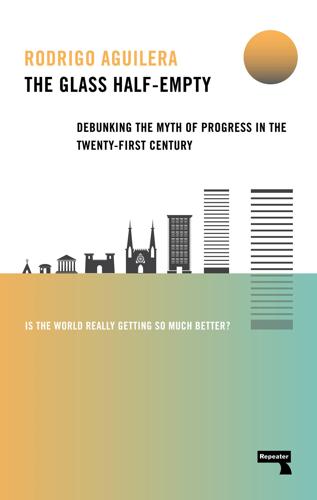
The Glass Half-Empty: Debunking the Myth of Progress in the Twenty-First Century
by
Rodrigo Aguilera
Published 10 Mar 2020
But unlike the New Optimists, I make no claim to being an unbiased spectator of human progress and the ideas and policies that we need to adopt in order to move forward. Many of these come from the left, often the “radical” left, though their putative radicalism is more reflective of how markedly the Overton window of our political discourse has shifted to the right — just a few decades earlier they would have been far less controversial. I merely ask that any centrist or conservative readers listen to these proposals with an open mind, and be intellectually honest enough to accept the evidence in their favor, just as they’ve been compelled to accept the claims of the New Optimists that they find naturally appealing.
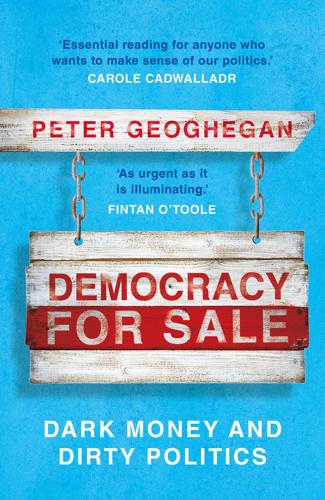
Democracy for Sale: Dark Money and Dirty Politics
by
Peter Geoghegan
Published 2 Jan 2020
These websites are businesses too, often run by canny entrepreneurs with a sophisticated understanding of the changed economics of news media. The key challenge is to gain a big enough audience to make money from clicks, while also delivering something that readers will consider paying for. Unity News’s David Clews told me that he knows “what buttons to push”. He talked about the Overton window, the notion that the range of ideas that are acceptable to the public can be shifted. “We cater our content to suit our audience, which is what any business would do,” he said. As well as subscribers, Unity News runs an online shop selling pro-Brexit gimcrack. One of the more popular items is a badge with Winston Churchill flashing the V-sign, embossed with the legends “We want our country back” and “We will never surrender”.
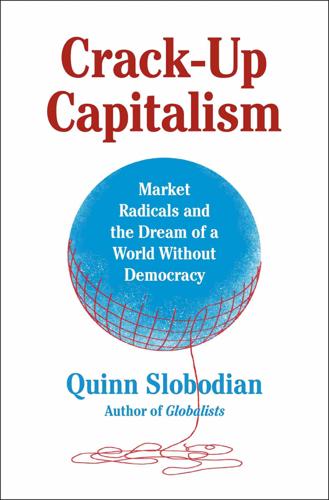
Crack-Up Capitalism: Market Radicals and the Dream of a World Without Democracy
by
Quinn Slobodian
Published 4 Apr 2023
Just as with coverage of the Chicago school’s influence on Pinochet’s Chile, the innovative quality of Romer’s economic proposals were reported without attention to the thousands of illegal detentions and the murders and disappearances of protesters and activists.38 One of the lawyers who filed a complaint against the constitutionality of the scheme for REDs was shot dead in what appeared to be an assassination, just hours after a television interview in which he denounced the ceding of land to investors for self-governing “model cities.”39 But what were such isolated episodes of police violence and human rights violations compared to the death toll of attempting to bring (back) popular elections to the Middle East? US foreign policy and Romer’s charter city proposals worked in tandem to shift the Overton window on the idea of alien rule. If the world’s most prestigious publications could get behind a project of colonialism by invitation, what else might be possible? Curtis Yarvin was, as usual, willing to say the quiet part out loud. He wondered why Romer insisted his charter cities were not colonialism.
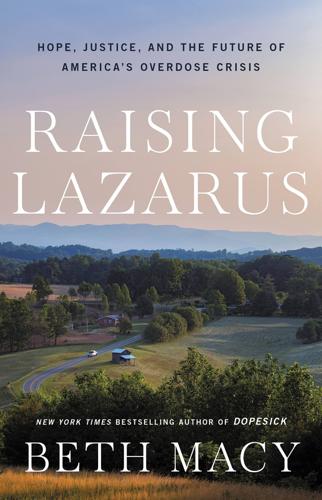
Raising Lazarus: Hope, Justice, and the Future of America’s Overdose Crisis
by
Beth Macy
Published 15 Aug 2022
Harm reductionist Alexis Pleus (with Nan Goldin in background) leads an annual Trail of Truth protest and die-in in her home city of Binghamton, N.Y. Surry County, N.C., opioid response director Mark Willis, a former Marine and DEA agent, charts his progress on a wall-spanning whiteboard as he tries to shift his community’s Overton Window of thinking about addiction treatment in his conservative, addiction-plagued region. Sonya Cheek, one of Surry County’s first peer-support counselors, was initially addicted to OxyContin. People in the local jail used to pass her phone number through the “chrome phone,” for help with re-entry, housing, and finding work, and Cheek eventually became the county’s Recovery to Work adviser.

Everyday Utopia: What 2,000 Years of Wild Experiments Can Teach Us About the Good Life
by
Kristen R. Ghodsee
Published 16 May 2023
Although Plato’s ideas about property and the family may still shock many people today, we must understand that this kind of utopian thinking provides an invaluable intellectual tool. Even if dreams don’t come true, they do expand our imagination of what is possible and thereby reshape the landscape of what we can practically achieve (the so-called Overton window). The ideas of blue sky thinkers have often inspired social progress that would not have gone as far had there not been an even further point imagined. For example, Plato’s works inspired later dreamers whom I will discuss in the coming chapters, people like Charles Fourier in France, John Humphrey Noyes in the United States, Clara Zetkin in Germany, and the kibbutzniks in Israel, who all advocated for some form of collective child-rearing.
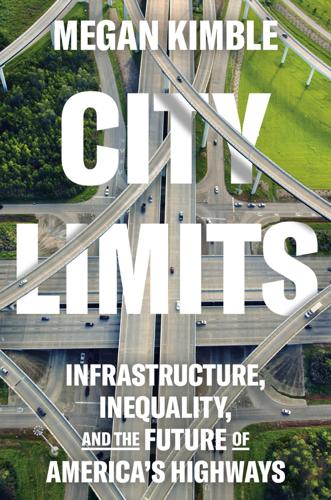
City Limits: Infrastructure, Inequality, and the Future of America's Highways
by
Megan Kimble
Published 2 Apr 2024
He was familiar with Patrick Kennedy’s campaign to tear down I-345 in Dallas; he’d been impressed by the studies showing the financial benefit of highway removal. And Reconnect Austin was itself a compromise, an acknowledgment that TxDOT would never remove an interstate from the fastest-growing state’s fastest-growing city. Adam talked to Heyden and Jay Blazek Crossley, and they agreed that there should be a campaign for full removal, shifting the Overton window on what was possible in the corridor. In the fall of 2020, Adam biked from his house in East Austin to the end of Ninth Street, walked around a guardrail, and sat down in the damp grass to consider the highway at the bottom of the hill. The traffic thrummed below, a low roar of rushing cars and rattling 18-wheelers.

More Everything Forever: AI Overlords, Space Empires, and Silicon Valley's Crusade to Control the Fate of Humanity
by
Adam Becker
Published 14 Jun 2025
“[They are] fairly important in the whole Silicon Valley ecosystem.”3 “Eliezer has IMO [in my opinion] done more to accelerate AGI than anyone else,” Sam Altman wrote in 2023. “Certainly he got many of us interested in AGI, helped DeepMind get funded at a time when AGI was extremely outside the Overton window, was critical in the decision to start OpenAI, etc.”4 Later on that year, Altman changed his Twitter profile to read: “eliezer yudkowsky fan fiction account.”5 There’s some irony in Altman’s statement: Yudkowsky doesn’t want to accelerate AGI at all. He would be thrilled to see a safe AGI come into existence, but he is convinced that nobody knows how to make AGI safe.
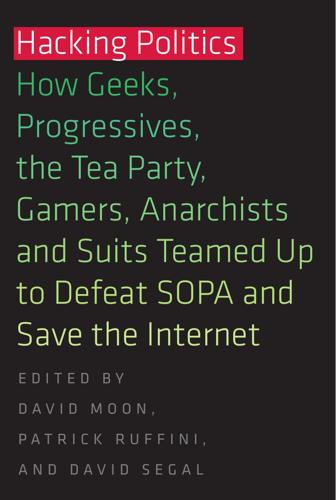
Hacking Politics: How Geeks, Progressives, the Tea Party, Gamers, Anarchists and Suits Teamed Up to Defeat SOPA and Save the Internet
by
David Moon
,
Patrick Ruffini
,
David Segal
,
Aaron Swartz
,
Lawrence Lessig
,
Cory Doctorow
,
Zoe Lofgren
,
Jamie Laurie
,
Ron Paul
,
Mike Masnick
,
Kim Dotcom
,
Tiffiniy Cheng
,
Alexis Ohanian
,
Nicole Powers
and
Josh Levy
Published 30 Apr 2013
A friend introduced a pot legalization bill, in part to make pot decriminalization more palatable, which in turn made medical marijuana seem more reasonable—and the latter two subsequently passed. For all of his inanities, Glenn Beck was astute to have pinpointed the importance of what’s known on the right as the “Overton Window”—that portion of the political spectrum whose ideas are treated as part of the “legitimate” discourse—and the importance of having ideological vanguards to “move the middle” and broaden scope of the debate. I’m already lamenting the inevitable collapse in the spectrum of allowable discourse in Congress, now that the left and right poles—Dennis Kucinich and Ron Paul—are both departing.
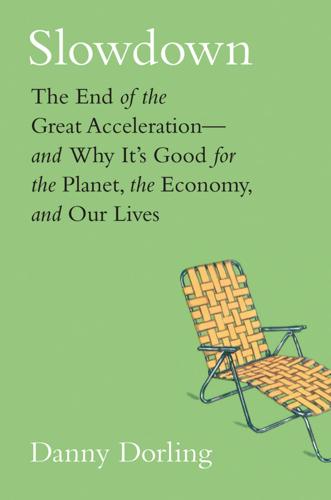
Slowdown: The End of the Great Acceleration―and Why It’s Good for the Planet, the Economy, and Our Lives
by
Danny Dorling
and
Kirsten McClure
Published 18 May 2020
If so, imagine that Bernie Sanders had become the U.S. Democratic Party presidential nominee. In the United Kingdom in 2017 this was said by political progressive outriders who supported Corbyn, whose unexpected electoral success denied the Conservatives a working majority: “Let’s face it, we’ve all been on a high but looking at the shifting Overton window shows that we’ve been hallucinating new possibilities into existence. This suggests that the excitement generated by the prospect of political power can be used to conjure up the social power required for radical change. If not then we’re in trouble. Acid Corbynism must act as a gateway drug else it will disappear altogether.”46 That commentary is indicative of change.
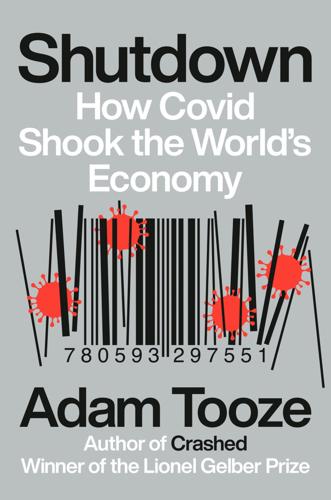
Shutdown: How COVID Shook the World's Economy
by
Adam Tooze
Published 15 Nov 2021
“It’s completely different than ten years ago,” one commission official remarked, “and I don’t think it’s because we’re better policymakers but because the world has changed completely.” 41 The accumulation of science, a generation of youth protest, the changing economics, and the coronavirus had shifted the Overton window. As Spain’s chief climate negotiator Teresa Ribera reflected, “Coming at this pivot point, the coronavirus forced the world to face the ‘contradictions’ in its economy.” Or as one senior official summed it up, in the characteristically broken English of the EU: “Frankly, without the pandemic, I don’t know if we had [sic] solved it.”42 Politically, it may have been impressive, but as a macroeconomic intervention the EU’s budget deal was less so.
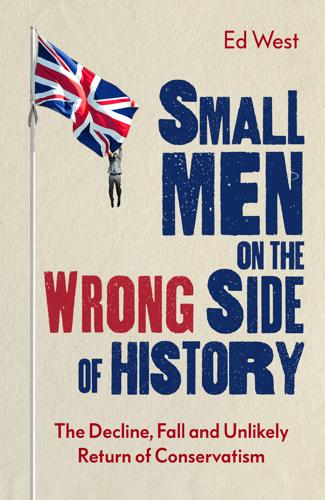
Small Men on the Wrong Side of History: The Decline, Fall and Unlikely Return of Conservatism
by
Ed West
Published 19 Mar 2020
In 1564, the year of Shakespeare’s birth, half of all Justices of the Peace had hesitated to swear the Oath of Supremacy recognising the monarch as head of the Church. By the time Elizabeth I died in 1603 Catholicism, very recently the majority religion, had become a mark of extremism, totally outside what we would now call the Overton Window of acceptable ideas. In just a few years the belief system that had dominated the country for almost a millennium was now seen as beyond the bounds of decency, even if a shrinking minority continued to cling to it. The old faith provided the security, rituals and social cohesion most people craved; the new offered radical ideas about salvation and a war on sin, although for today’s Godly it’s the sins of racism, sexism and homophobia that must be driven out.